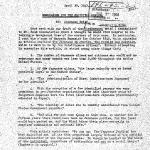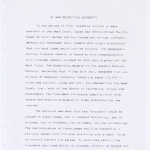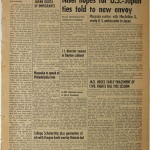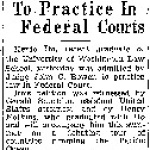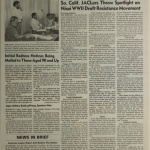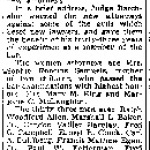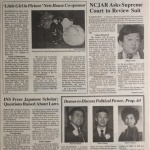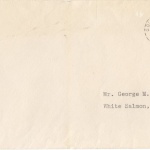Frank Chuman
| Name | Frank Chuman |
|---|---|
| Born | April 29 1917 |
| Birth Location | Montecito, California |
| Generational Identifier |
Pioneering Nisei attorney Frank F. Chuman (1917– ) was active in many of the key civil rights-related cases in the early postwar era. He is also credited with being one of the first to come up with the concept of reopening the wartime cases using the writ of error coram nobis . Chuman also wrote an important history of Japanese American-related legal cases.
Frank Fumio Chuman was born in Montecito, California, the son of Japanese immigrants from Kagoshima. His father managed a local estate and his mother was a " picture bride ." Soon after, the family moved to Los Angeles, where the elder Chuman worked as a gardener and dry cleaner. Frank Chuman graduated from Los Angeles High School in 1934, where he was on the debating squad and served as class valedictorian. (He also was taught Japanese for a time by future Japanese prime minister Takeo Miki, then residing in Los Angeles). After graduating from UCLA in 1938, he enrolled in USC's Law School in 1940. During his time in law school, he worked at the Los Angeles County Probation Department. Following Executive Order 9066 , Chuman was placed on "leave of absence" from his job, and subsequently taken away and confined at Manzanar . In March 1942, Chuman was appointed chief administrator at the Manzanar Hospital, where he served for a year. Following the disturbances of the " Manzanar riot " in December 1942, Chuman supervised the care of inmates shot by military police.
In mid-1943, Chuman sought to resettle outside of camp. However, he initially answered "no-no" to the government loyalty questionnaire , out of resentment over his confinement, and only through the repeated efforts of Manzanar Camp Director Ralph Merritt was he able at last to withdraw those answers and be approved for a leave permit. Through sponsorship of the American Friends Service Committee, Chuman left Manzanar in the fall of 1943 to continue his legal studies, first at the University of Toledo in Ohio, then in Baltimore at the University of Maryland Law School, from which he graduated in 1945. While a student at the University of Maryland, Chuman took a course on equity offered by Dean Roger Howell. In the course, Howell discussed the ancient common law Writ of Error Coram Nobis and its development as a part of the Chancery court procedure.
In 1945, Chuman returned to Los Angeles. There he was hired by civil rights lawyer A.L. Wirin as a law clerk for his law firm, which served as special counsel to the Japanese American Citizens League (JACL). In the process, Chuman became associated with several landmark constitutional cases argued before the U.S. Supreme Court, notably Oyama v. California and Takahashi v. California Fish & Game Commission , for which he helped draft the initial briefs. In 1946 Chuman won a signal victory in a legal challenge to racial restrictive covenants in the city of South Pasadena, which maintained restrictions against minorities on publicly-owned land. After passing the California bar in 1947, Chuman left the Wirin firm and joined John Aiso in a law partnership, which remained active until Aiso was elevated to the bench in 1954. He subsequently practiced with David McKibbin until 1968.
During the postwar years, Chuman remained active with the JACL. In 1946 he became president of the organization's newly reopened Los Angeles chapter. He later was legal counsel for the national JACL from 1953-60 and served as its national president from 1960-62. During his term as president, Chuman negotiated with UCLA president Franklin Murphy the creation of the Japanese American Research Project (JARP), to be housed at UCLA, with archives holding rare materials on Japanese immigrants. Chuman also helped raise $220,000, mostly from individuals, to fund it. In connection with JARP, Chuman devoted several years of research, when he could get away from his law practice, to the creation of a legal history of Japanese Americans, including the evolution of legislation and jurisprudence in regard to immigration restrictions, alien land laws , wartime confinement and other subjects. Chuman's book, entitled The Bamboo People , appeared in 1976. It remains the standard work in that area.
During the 1960s, Chuman associated himself with the civil rights movement and formed part of the JACL committee that was assigned in summer 1963 to draft a statement on civil rights. Meanwhile, he was named commissioner of the Los Angeles County Human Relations commission. Chuman organized intergroup meetings and held hearings in order to expose unfair practices and to further intergroup dialogue to avert racial violence.
In the 1970s, Chuman became active in Japanese American redress efforts , and especially challenging the convictions of defendants in the wartime Japanese confinement cases. Over previous decades Chuman had discussed at various times the idea of using the writ of coram nobis to overturn the verdicts, and in 1956 had even lobbied the JACL for funds to examine such an option. However, Chuman had not been able to pursue such an appeal, due to lack of funds and to the high standard of proof of misconduct required for such a case. In 1981, during testimony before the Commission on Wartime Relocation and Internment of Civilians (CWRIC), Chuman again proposed using the writ to attack the convictions. Soon after, lawyer/scholar Peter Irons and attorney Dale Minami independently undertook a coram nobis petition, based on newly discovered proof of official misconduct. Chuman joined the legal team as an adviser. The coram nobis petition ultimately led to the reversal by federal court judges of the convictions of Fred Korematsu and Gordon Hirabayashi .
In the years after 2000, Chuman moved to Thailand with his wife, Donna. In 2005 he received a Distinguished Graduate Award from University of Maryland School of Law. In 2011 he published his memoirs, Manzanar and Beyond .
For More Information
Chuman, Frank F. The Bamboo People: The Law and Japanese-Americans . Del Mar, Calif.: Publisher's Inc., 1976.
———. Manzanar and Beyond: Memoirs of Frank F. Chuman, Nisei Attorney . Foreword by Daniel Inouye. Introduction by Dale Minami. San Mateo, Calif.: Asian American Curriculum Project, Inc., 2011.
Last updated Dec. 15, 2023, 11:57 p.m..

